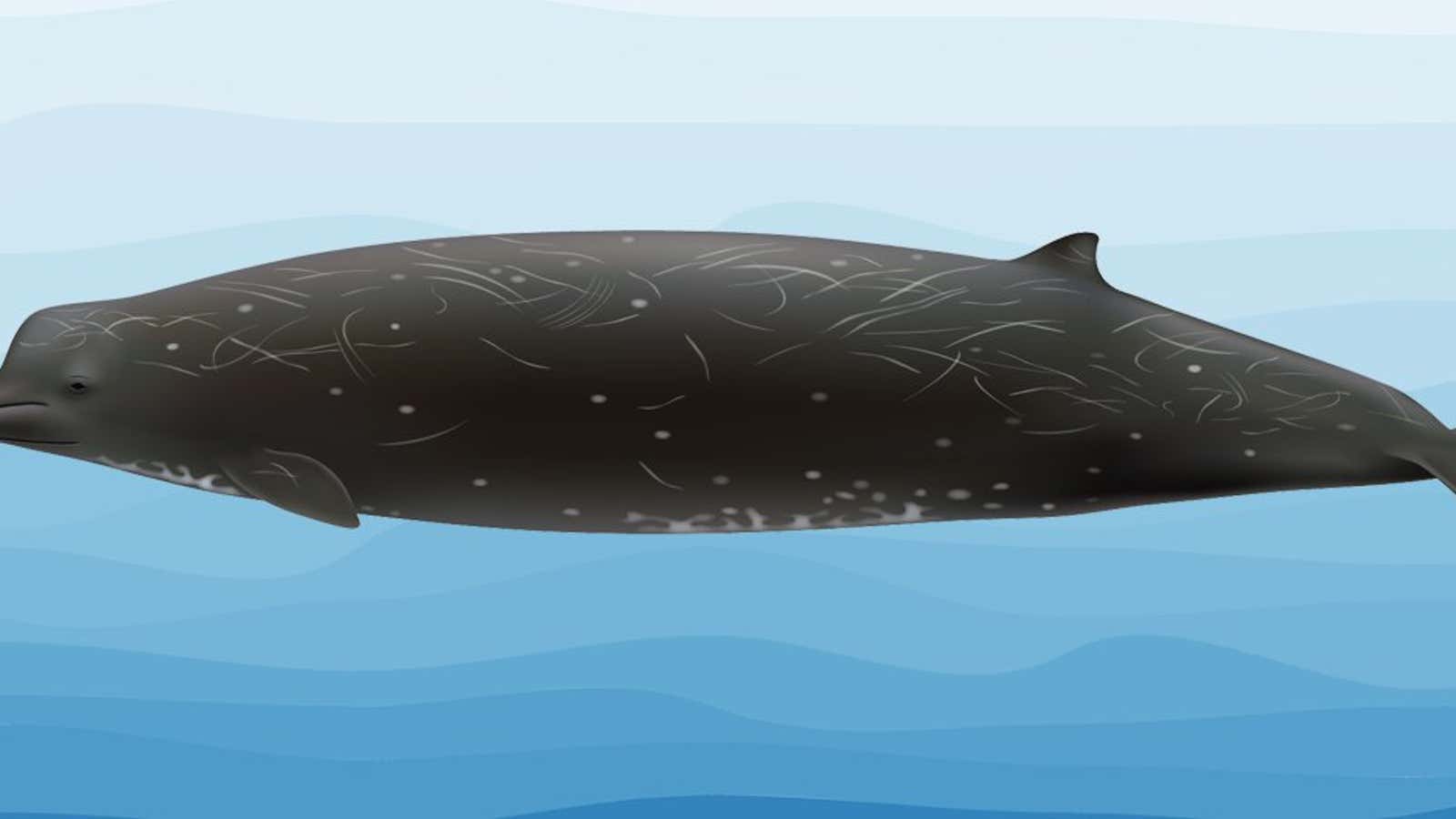Whales are hard to miss, even in the vast underwater wilderness of the oceans. So it’s surprising that we’re still discovering new species of whales.
The first hints of a new species came from Japan in 1940s, when whalers reported catching an unknown beaked whale. Then, in 2004, a dead whale washed up on an Alaskan shore that looked vaguely familiar. The next hint came in 2013, when Japanese scientists used modern DNA analysis to test old samples and found evidence that indeed this mysterious mammal may be new to us. Then, finally, in 2014, another washed up dead on a shore in Alaska.
A new study used the 2014 sample and compared it with 178 other samples of whales across the Pacific Rim held by the National Oceanic and Atmospheric Administration (NOAA). The genetic analysis revealed that this species was very different from any known species of beaked whale, and it is likely to be a new species that will soon be given its own name.
The reason it took so long to discover is because scientists didn’t have enough evidence to claim it was a new species. Some features resembled those of a known species, Baird’s beaked whale. But scientists now know that the 2014 dead whale was not an adult. A full-grown adult of the new species would be about two-thirds the size (25 feet) and darker in color than an adult Baird’s beaked whale, and the genetic analysis shows it belongs to the genus Bernadius.
“We don’t know how many there are, where they’re typically found, anything,” Phillip Morin, a molecular geneticist at NOAA, told National Geographic. “But we’re going to start looking.”
Discoveries like this one highlight just how little we still know about the ocean. If nothing else, that is reason enough to ensure we don’t damage it unnecessarily. ”We’re doing increasing damage to our environment, and we can’t even begin to conserve the biodiversity we know is out there,” Morin said. “Yet there’s so much more about our world we don’t even understand.”
